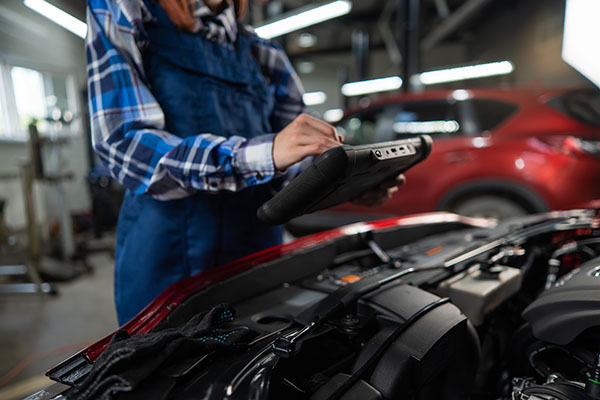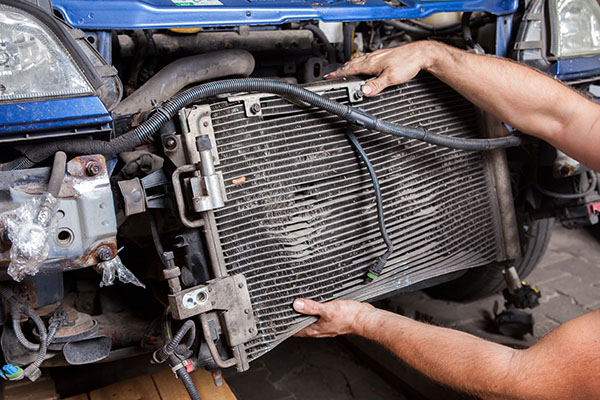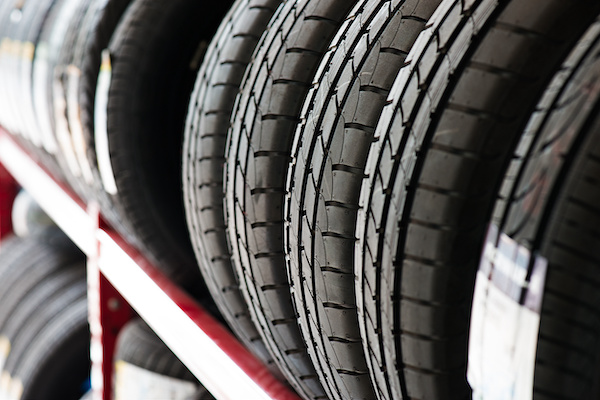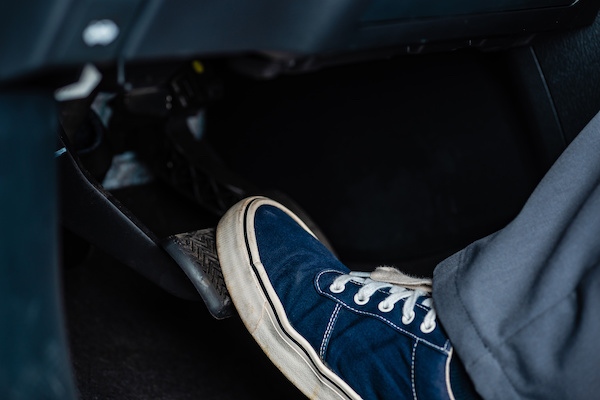Posted on 5/31/2023

As the summer heat arrives, having a properly functioning air conditioning (A/C) system in your vehicle is crucial for a comfortable and enjoyable driving experience. If you're experiencing issues with your A/C or want to ensure it's in optimal condition, an A/C repair and inspection can help identify and address any problems. But what exactly goes into this kind of procedure? Below, we will answer exactly that, so continue reading if you want to find out more! Visually Inspecting The A/C System And Main Parts The first step in an A/C repair and inspection is a visual examination of the system. A technician will inspect components for visible damage and fluid leaks. The inspection goes over these main parts of the A/C: Compressor Condenser Evaporator Hoses Fittings System Testing And ChecksPressure: To assess the A/C system's performance, pressure testing is conducted. The technician will connect gauges to measure ... read more
Posted on 4/29/2023

The cooling system is an essential component of any vehicle. It regulates the engine's temperature and prevents it from overheating, which can lead to serious damage. However, like any other component, the cooling system can fail and cause problems to other connected parts. Here are some signs of cooling problems that you need to watch out for, so you can catch them before they get serious and expensive: 1. High Engine Temperature (Overheating) If the engine temperature gauge shows that the engine is running hotter than usual, it could indicate a cooling problem. When it runs hotter than usual, it is a sign that the cooling system is not working efficiently. This may be caused by a coolant leak, a malfunctioning thermostat, or a blocked radiator, so make sure to visit a repair shop ASAP. 2. Leaking Coolant Seeing green or yellow fluid leaking from your car is most likely coolant from the cooling system. This can occur due to a damaged or punctu ... read more
Posted on 2/26/2023

The brake rotor, also known as a brake disc, plays a crucial role in your vehicle's braking system. It is connected to the wheel and rotates with it. When you apply pressure to the brake pedal, the brake pads clamp onto the rotor to create friction, slowing the wheel and bringing the car to a stop. Over time, the rotors can become warped or damaged from the heat and friction produced during braking. This can result in a vibrating sensation when braking and lower overall braking performance. In some cases, it can also cause more wear and tear on the brake pads. If you suspect that your brake rotors may be warped, it's important to have them inspected by a professional auto technician. What Causes Brake Rotors to Warp? The following are the most common explanations for warped brake rotors: 1. Overheating Excessive heat is one of the most common causes of brake rotor warping. Each time you apply the brakes, the brake pads clamp down on the rotor, generating friction and heat ... read more
Posted on 1/30/2023

Shopping for tires can be an intimidating task, especially if you're not familiar with the different types and brands of tires available on the market. However, it's important to choose the right tires for your vehicle to ensure its safety and performance on the road. Here are some tips to help you shop for tires like a pro. Determine the size of your tires: Before you start shopping for tires, you need to know the size of the tires that your vehicle requires. You can find this information in your owner's manual or on the sidewall of your current tires. The tire size is indicated by a series of numbers and letters, such as "P225/55R16." Choose the right type of tire: There are various types of tires available, including all-season, summer, winter, and performance tires. It's important to choose the right type of tire for your driving conditions and needs. For example, if you live in an area with harsh winter weather, winter ... read more
Posted on 12/23/2022

Has it happened to you that you are driving and suddenly someone crosses your path, and you are forced to brake quickly? When braking hard, brake vibration is most noticeable. You may notice a vibrating sound that comes from the pedal and sometimes even from the steering wheel. Brake vibration can be felt in different parts of the car. It can be felt in the steering wheel, the brake pedal and in the suspension when driving at high speed. Where you feel the vibration generally indicates whether it is the front or rear brakes. When the steering wheel vibrates, the front rotors cause it. But when there is vibration in the brake pedal, the rear rotors cause it. I will mention some cases in which your car will vibrate when you brake: • Vibration Because Brake Rotors Show Irregularity Over time, after so much driving, warping occurs in the brake rotors. When braking, there is friction that generates heat, which causes warping. Generally, when wear occurs, rotors wear unevenly, and ... read more